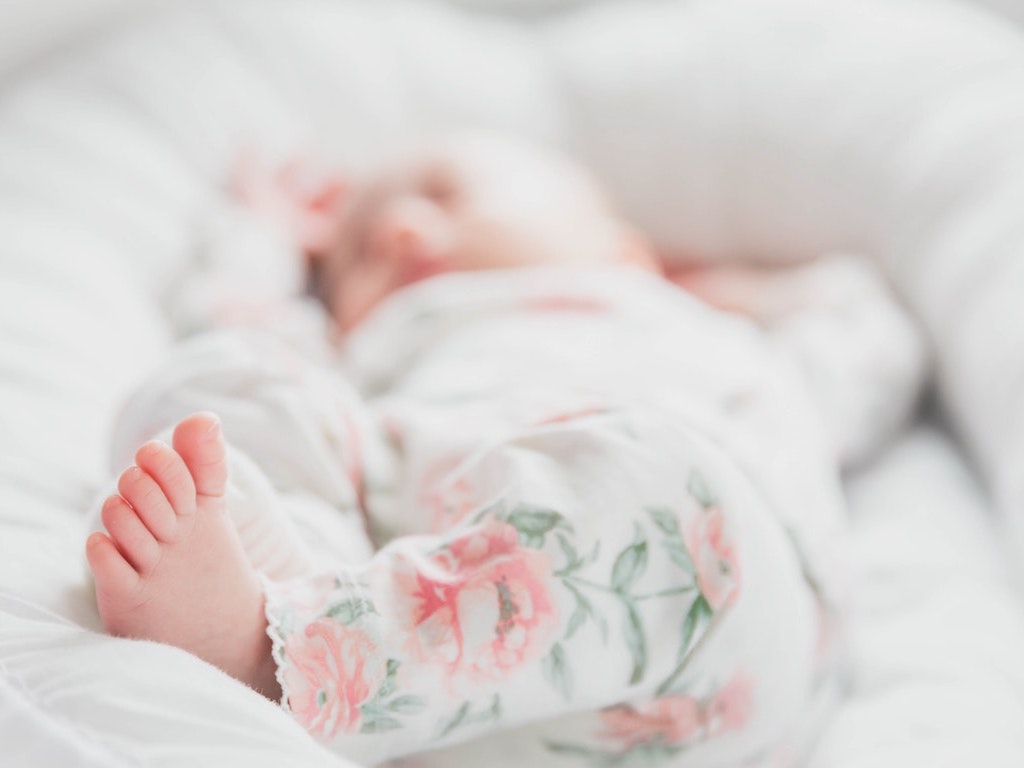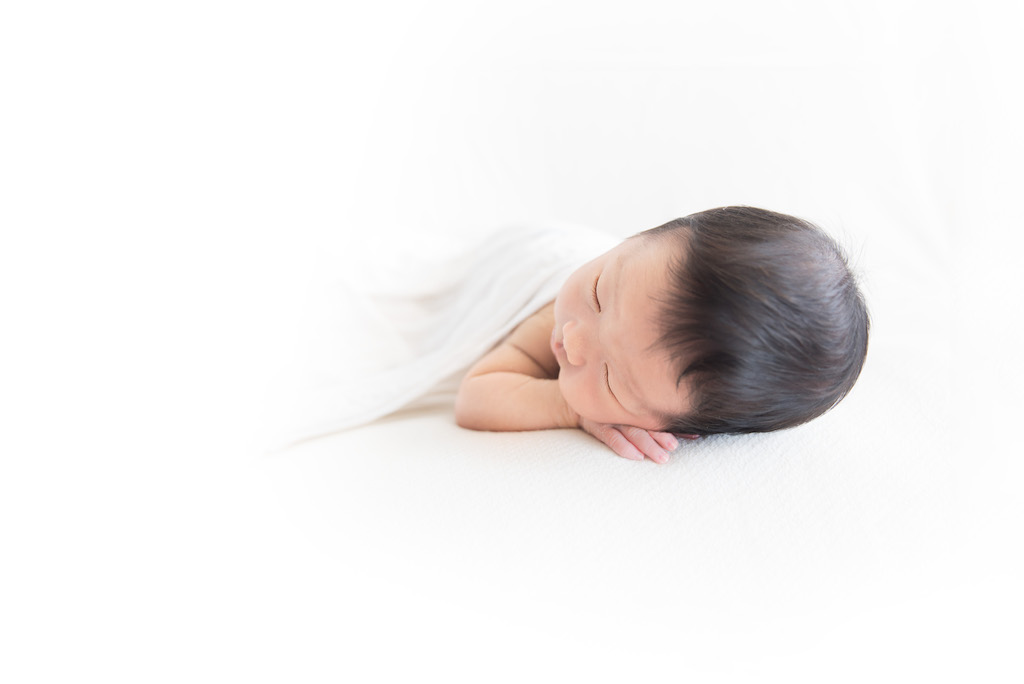SingaporeMotherhood | Baby & Toddler
July 2011
Sleep Secrets

“People who say they sleep like a baby usually don’t have one,” author Leo J Burke so accurately observed. Indeed. As Dr Kenny Pang says, there’s nothing like the sight of a peacefully sleeping baby — though many new parents will tell you that it’s a sight they don’t see often enough. The ENT/Sleep Specialist and director of Pacific Sleep Centre shares his expertise on sleep here, with excerpts from his book Sleep Solutions.
How a Baby Sleeps
Michael, a 10-day old baby boy, is a sleep angel during the day. He drinks his milk, then goes back to sleep. Come nightfall though, he transforms into the newborn equivalent of a party animal. Michael spends half the night awake. “He’ll kick his arms and legs all over the place and stare at the ceiling. He doesn’t cry, but he will not sleep,” says his exhausted father.
According to Dr Pang, this is normal. Babies are not aware of the difference between night and day. Your baby needs to sleep and feed around the clock to grow and develop correctly, so night and day don’t matter much to him.
In general, your newborn will sleep about 16 to 18 hours out of every 24. A newborn usually sleeps two to four hours at a time and wakes up hungry. She needs to eat around the clock at first but will gradually sleep more at night and less during the day.
You can begin to teach your baby the difference between night and day by behaving differently at different times. During the day, talk to your baby more while you feed her. Keep it light and bright. At night, be more subdued and quiet. Keep the lighting down. Eventually, she’ll catch on and begin to sleep more at night.
If your baby tends to sleep all day, dozing through her feedings, try waking her up to eat. She needs to learn that the longest sleeping period is during the night. Help her to be a bit more organised at this point by taking her into the centre of family activity at around 4 pm. Even if she dozes, keep her upright in an infant seat, carrier, or bouncy chair. Then give her a bath around 7 or 8 pm. This will keep her awake and relax her for her long sleep (four to five hours, hopefully) ahead.
No child “sleeps through the night”, but babies do reach the point where they can get themselves back to sleep when they wake up periodically.
How much Sleep does my Child need?
The amount of sleep needed varies individually with the baby and with the age and circumstances. Some babies are long sleepers and some are cat-nappers. Some are very regular and others are very irregular.
| Age | Average amount of sleep per day |
| Newborn | up to 18 hours |
| 1-12 months | 14 – 18 hours |
| 1-3 years | 12 – 15 hours |
| 3-5 years | 11 – 13 hours |
| 5-12 years | 9 – 11 hours |

Putting Baby to Bed
As your baby matures and grows older, she will become opinionated. This might be a good time to decide where you want her to sleep, without her becoming a vocal part of the decision-making process. Developing firm bedtime routines will help her get herself to sleep and stay asleep.
Put your baby to bed while she’s still awake. This way she’ll have practice falling asleep in her own bed. If she’s fed or rocked to sound sleep, she’ll expect the same service in the middle of the night.
There are quite a few schools of thought out there on the best method to aid your baby to sleep.
The Ferber Method
Dr Richard Ferber’s method teaches babies to “soothe themselves” to sleep. This method is often referred to as the “cry it out” method, although Ferber himself never calls it that. Over the years, the Ferber method of sleep training has sparked controversy among parents, paediatricians, and sleep experts alike. Some swear by it, while others claim that it creates lifelong emotional scars.
When babies cry after being left in the cot, parents are instructed to pat and comfort their baby after a pre-determined period of time, but not to pick up or feed their baby. This routine is called “progressive waiting”. The suggested waiting time, which Ferber charts in his book Solve Your Child’s Sleep Problems, is based on how comfortable you are with the technique.
After a few days to a week of gradually increasing the waiting time, the theory goes, most babies learn to fall asleep on their own, after having discovered that crying earns nothing more than a brief check from their parents. But not everyone believes that it’s okay to leave a small child alone to cry. Some experts also argue that it could undermine a child’s sense of security.

The Sears Method
Dr William Sears, a paediatrician, is a firm opponent of the Ferber method. He advocates his attachment parenting approach that dictates, among other things, that parents respond to their children on demand, day or night. Dr Sears has advised parents to sleep with their children and to view night-time as a chance to do more parenting.
The American Academy of Pediatrics has also made a series of pronouncements on sleep strategies. Among some suggestions: Parents should try using a pacifier to soothe infants to sleep — despite concerns artificial nipples may interfere with breast feeding.
The group also recommended for the first time against the practice of babies sharing their parents’ beds, after concluding that this is associated with a higher risk of Sudden Infant Deaths Syndrome (SIDS). But they said the crib should be in the parents’ room, so as to remain close.
Pediatrician Dr Marc Weissbluth suggests that the child take frequent naps, and to put the child down drowsy but awake.
Is A Compromise Possible?
Dr Pang suggests moderation and gradual bedtime routines as a middle ground between the “night-time neglect” of the Ferber method, and the high demands on parental sleep that comes with Dr Sears’s method.
“There is no real ‘perfect’ method for putting a child to sleep. Most would agree on a gentler approach, rather than the Ferber technique, but the parents must be allowed to enjoy some form of “life” for themselves and not let their lives revolve around the child’s,” he explains.
The Importance Of Sleep
“Depending on the age group, most children in Singapore sleep fairly well until they reach school-going age, when they are given a lot of homework and tuition from their parents and hence, sleep later and later. They also tend to stay up gaming on the gadgets that they own, says Dr Pang.
Many studies have showed that children who sleep more and have good quality sleep do better in school.
Disturbed sleep in children negatively affects their school performance and various neurocognitive abilities, according to an article published in the Journal of School Health. This review of 21 studies found that some causes of disturbed sleep are reversible and that affected students can achieve better academic performance after these problems are solved.
In the study, teachers were asked to complete weekly performance reports on 74 school children aged six to 12, without knowing how much sleep the students received. Over the course of the three-week study, researchers varied the amount of sleep the children received. For example, one week they went to bed and woke up at their usual times. Another week, they stayed up much later than normal, and in the last week the children got at least 10 hours in bed each night.

There were many more academic problems during the week that the children stayed up late and got less sleep, compared with the weeks that they followed their normal sleep schedule or got more sleep than normal. The teachers also reported that the students had more difficulty paying attention when they stayed up late.
Another American study which experimented with different school starting times concluded that “students with greater school-week sleep lag are at a significant disadvantage for academic achievement, owing to their reported decreased alertness and increased sleepiness during the day”. In the survey, students with higher grades reported that they had more sleep and went to bed earlier on school nights than students with lower grades.
Sleeping for Better Grades
In conclusion, sleep deprivation leads to a temporary loss in IQ levels, reasoning and memory, and even makes kids a little hyper. Many attention deficit symptoms are really due to sleep deprivation. Often when kids are tired, they act out as though they are self-stimulating in order to stay awake.
Still, it’s not just about the quantity of sleep, but also the quality of sleep that a child gets. Children with poor quality sleep (for example, children with sleep disordered breathing, like snoring and/or obstructive sleep apnea) may sleep for nine to 10 hours per day but still wake up tired and not refreshed.
They sleep in a stressful condition with low oxygen (because their airways close) and stress to the heart, brain and lungs. Common sleep disorders like obstructive sleep apnea can, and should be treated. If your child is not doing well in school, is suspected to have ADHD, has a short attention span, snores loudly at night or stops breathing during his sleep, he needs medical attention. This would usually result in better school performance and better school grades.”
Featured image: Tuva Mathilde Løland on Unsplash
All content from this article, including images, cannot be reproduced without credits or written permission from SingaporeMotherhood.
Follow us on Facebook, Instagram, and Telegram for the latest article and promotion updates.






